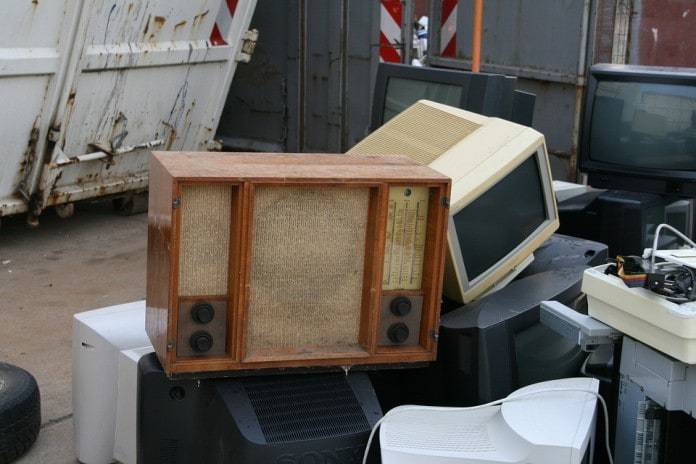
MANCHESTER – The cost of throwing away electronics is paid for by townships on garbage day, but the township is hoping state legislation will change that.
Companion bills passed in both the State Assembly and Senate would require manufacturers of “covered electronic devices” – which include computers, monitors, laptops and televisions – to cover the costs of collecting, transporting and recycling those products. The bills have received the support of the Manchester township council.
Council unanimously agreed to support bills S981 and A2375, which changes the existing Electronic Waste Management Act, by making manufacturers cover its “market share in weight of all CEDs collected in a program year,” not the previously worded “return share in weight.”
The NJ Department of Environmental Protection determined the manufactures obligations under the old law underestimated the amounts of CEDs collected, which translated into budget strains for local municipalities.
The bills also add printers, fax machines and cell phones to the list of CEDs.
“My understanding is that this legislation will force manufacturers to reimburse the waste collectors so our charges from the collectors will be eliminated or reduced to only handling costs,” Manchester public works director Al Yodakis told The Manchester Times. “The town has disposal costs and that is where taxpayers are impacted.”
He didn’t have an exact amount the township spends, or how much savings the township would see, only that it would. “Costs vary on the amount of electronics brought in by residents and the Township still continues to collect electronics at the recycling center and at bulk pick-ups.”
Manufacturers, under the law, were supposed to cover the costs of recycling e-waste by paying recycling vendors. Since the original law went into effect January 1, 2011, manufacturers eventually reduced those payments or stopped paying altogether. The cost was shifted to local counties and municipalities.
Without manufacturer payments, some municipal recycling centers were forced to stop taking e-waste or close, Melinda Williams of the Salem County Improvement Authority wrote in an opinion piece on NJ.com in March.
“Manufacturers have to step up and abide by the law to recycle their products statewide regardless of the cost,” she wrote.
The township does provide free collection of CEDs during bulk pick-ups and at its recycling center. Under the bills, the NJDEP could establish a statewide collection program; those manufacturers with a market share of 10 percent or less would be required to participate in that program, while those manufacturers with a greater market share could participate, or create their own program.
Despite having these readily available pick-ups and drop-offs, illegal dumping of CEDs is still a problem.
“I wish I knew why there is still dumping. We really try to make it as easy as possible for residents but it still happens,” Yodakis said.
Now sitting on Gov. Chris Christie’s desk, the bill faces an “uncertain future,” writes NJSpotlight’s Tom Johnson. He writes that the governor pocket vetoed a similar bill earlier this year.






